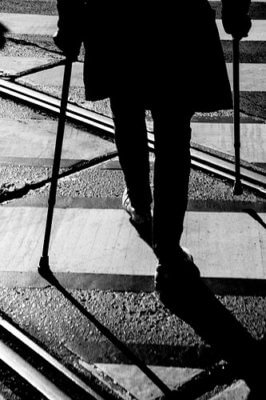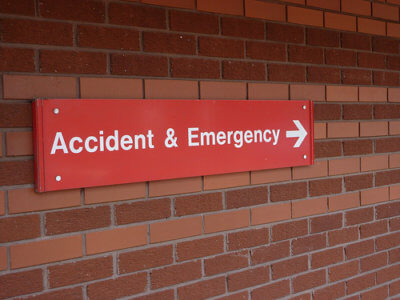Injury and Depression – How Connected is the Body and Mind?

By: Picturepest
by Andrea M. Darcy
From athletes to sports lovers and those who are just unfortunate, physical injuries happen. And they can be quite a curve ball.
How much can physical injuries really affect your mental health?
And how concerned should be if you really don’t feel yourself after a fall, accident, or sports injury?
Can a sports injury cause depression and other mental health issues?
Injury and mental health issues are absolutely connected.
Physicians who deal with top athletes, for example, expect and prepare for athletes to need psychological care post-injury.
Sadly, if you are just a regular patient, psychological health when injured rarely gets a mention in hospitals and with your GP, and it becomes a case of taking care of yourself and finding the support you need.
Note that it’s just not during the time of your injury you might suffer depression or anxiety.
A Canadian research study that looked at over 20,000 patients hospitalised for injuries found an increased risk of mental health issues for at minimum 10 years following the event, with the greatest risk being in the year immediately following the injury. People with serious injuries were also found to be three times more likely to then be hospitalised for mental health.
Mental health issues injuries can help cause

By: Lydia
The mental health issues that an injury might cause or trigger include things like:
- addictions
- anger issues
- anxiety
- changes in appetite
- changes in sleep pattern
- decreased self-esteem
- fear and panic attacks
- lack of interest in life
- loneliness
- loss of motivation
- relationship issues
- sadness and depression.
Why do some people experience anxiety and depression after an injury when others don’t?
Here’s a very interesting thing about injuries – they don’t just cause depression. They also trigger or make worse any mental health issue you might have already had.
For example, if you were a very content and balanced person before your injury, with a strong support system of family and friends to take care of you, you might be thrown-off by an injury, but manage well.
Contrast this with someone who had mild anxiety, or low moods that they managed to get by despite of , or who have no close friends and a family living far away. An injury that sees them laid up for any length of time will be more of a mental challenge.
Here’s another sobering fact – the same comprehensive study mentioned above also found a connection to mental health issues and being likely having an injury in the first place. Those with injuries were found to be over three times more likely to have seen a mental health practitioner, with eighty per cent of those claims being for panic, anxiety and depression.

By: Iris Geerardyn
So it goes to show that taking care of our mental health really is as important as taking care of our physical health.
How do injuries affect our mental health?
How exactly do injuries have a knock-on effect on our psychological wellbeing?
1. Injuries can have physical effects that directly affect mood.
Pain makes it more difficult for anyone to feel good. And if you were previously reasonably active, your body would be used to the feel-good chemicals that exercise releases. Without this ‘hit’, you can feel tired and out sorts and/or can’t sleep well. [Read our article on “Exercise and Depression” for more on this.}
2. Injuries disrupt our daily lives and our ways of being.
Many of us don’t realise how reliant we are on our daily structure until it is suspended. If you have any issues with repressed anger, you might find this leaves you snapping at others or pushing away those you love. Otherwise, the boredom can lead to frustration and negative thinking, a trigger for depression. And if you are used to a busy workplace but delegated to staying home, you might end up with feelings of isolation.
3. Injuries can leave you feeling helpless.
Things you used to take for granted are now difficult or impossible. If you are the type who struggles to ask for help, this too can leave you feeling frustrated or even depressed.
What can you do to protect your mood if you have had an injury?
Acceptance is hard, but helpful. What can you really change here? What is it time to accept as factual? Where is the balance between what you need to accept and what you need to work to get better answers on?
Acceptance and Commitment Therapy (ACT) has been shown by research to be increase psychological coping during rehabilitation for sports injuries.
Look into tools of wellbeing that can help. This might be mindfulness, journaling, or reading about self-compassion. Note that therapists working with injured athletes also use things like visualisation, goal-setting, and relaxation techniques.
[Don’t know what mindfulness is? Read our free and easy-to-follow Guide to Mindfulness.]
Support is essential.Reach out to others, and accept as much help as you can from friends and family. See your injury to see it a learning opportunity to learn about your personal boundaries, and your capacity an opportunity to learn to accept and to ask.
Do consider professional help. If your low moods or psychological symptoms are too hard to handle, or go on for six weeks or more, do consider seeking professional support in the form of a counsellor or psychotherapist. Remember, top athletes get it. Why not you?
Finally, a growing body of research (starting with this often quoted study looking at athletes) now shows that psychological interventions actually improve healing times. The better your self-esteem and moods, the shorter the recovery.
Harley Therapy connects you with professional therapists who can help you with depression caused by injury. Can’t leave the house? Try online therapy from the comfort of your home.
 Andrea M. Darcy is a mental health and wellbeing expert with training in person-centred counselling and coaching who works as a consultant helping people plan their perfect therapy journey. She knows first hand how injury affects mood after fracturing her hip in a fluke accident! Find her on Instagram @am_darcy
Andrea M. Darcy is a mental health and wellbeing expert with training in person-centred counselling and coaching who works as a consultant helping people plan their perfect therapy journey. She knows first hand how injury affects mood after fracturing her hip in a fluke accident! Find her on Instagram @am_darcy




